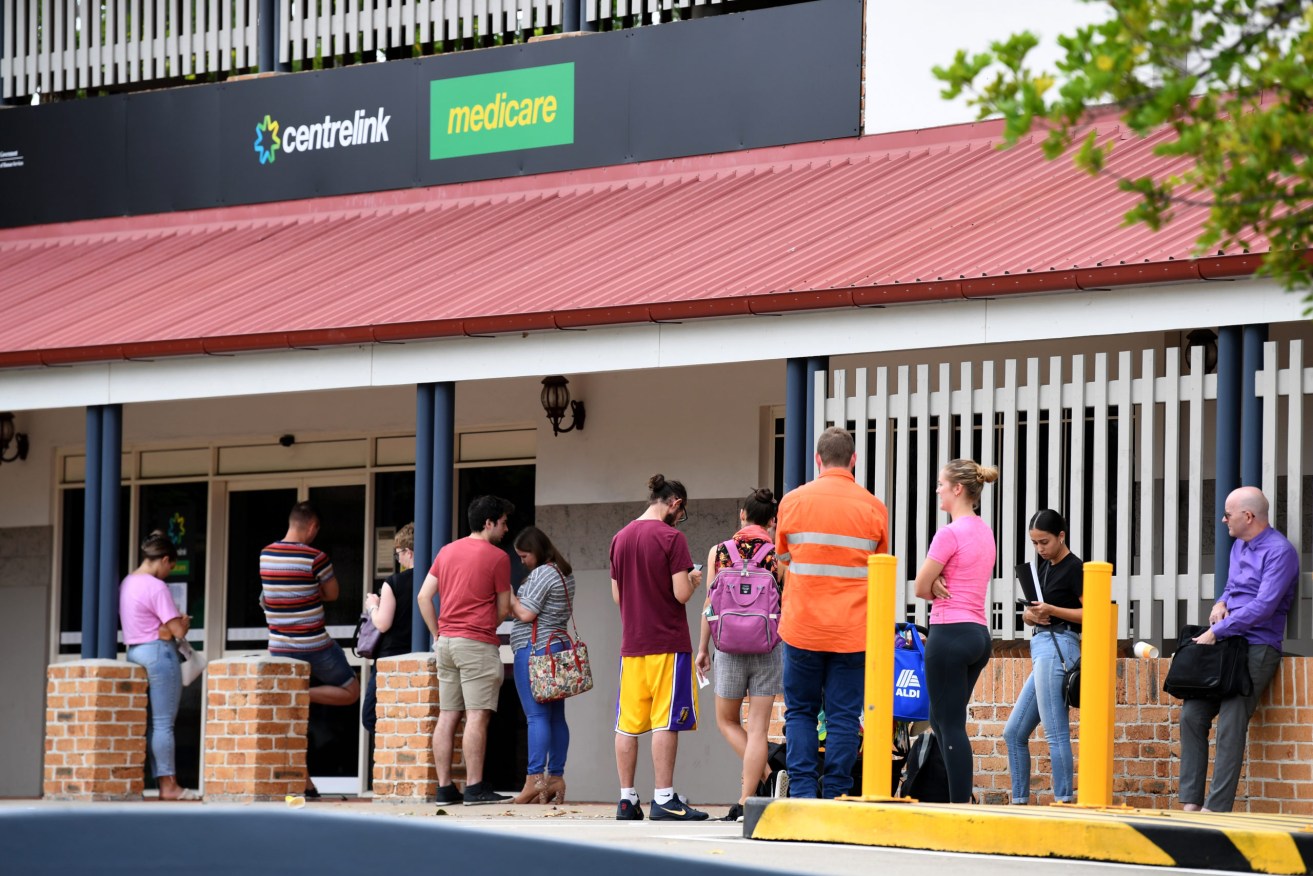‘Disposable’: Casual workers trying to break free of Centrelink
The experiences of casual workers stuck in a cycle of precarious employment, unable to secure full-time jobs and break free from Centrelink, will be heard at a Senate inquiry into job security today.


Photo: AAP/Dan Peled
The Select Committee into Job Security was established in December to examine the state of insecure employment and workplace rights and conditions – particularly relating to the gig economy – across Australia.
The committee is also investigating the impact of government agencies on insecure work, while a report by think tank Per Capita released last year estimated privately-run employment service agencies stood to make an additional $210 million in government funding during the pandemic.
A submission by the Unemployed Workers Union recommends increasing welfare payments and capping the length of job agency contracts to prevent potential profiteering from fire-and-rehire tactics.
The experiences of Adelaide-based casual worker Mark Tripodi are included in the union’s submission.
Tripodi said that while he had picked up numerous short-term jobs over a number of years, he was unable to find stable work that will allow him to permanently break free from JobSeeker payments.
Tripodi said that this year he was juggling three casual and short-term jobs while caring for his grandfather, and the inconsistent nature and fluctuating hours of his employment meant he was forced to rely on Centrelink as a back-up.
“During festival season I picked up work that I’ve been pretty consistently getting for the last few years,” he said.
“And then I was able to secure some short-term work where I’m working 15 hours a week at a radio station.
“This work I’m getting that is paid has eventuated because I’ve been a long-term volunteer. It’s only low-paid because there aren’t enough hours otherwise I’m being compensated okay – but it’s not an expanding industry.”
Tripodi said his earnings would sometimes exceed Centrelink’s payment threshold and he would then be forced to wait for up to 13 weeks for payments to resume.
Under Service’s Australia’s tapered income scale, once a JobSeeker recipient earns a fortnightly wage of $1217 their welfare payment reduces to zero. If this continues for 12 weeks the Centrelink payment is cancelled and the JobSeeker must reapply once they’ve lost their income and wait up to 13 weeks for the first payment.
“There’s this concern when you have insecure work I think, that if you earn over the threshold for too many weeks and then you lose the extra income that you’re going to be left out in the cold for god knows how long,” Tripodi said.
“Obviously, you have to wait until you’ve run out of money before you can get Centrelink again.”
Tripodi said he had engaged in the government’s Jobactive program, applying for work and meeting mutual obligations, while trying to provide care for his grandfather with complex needs.
“Trying to find work that fit around his life was pretty difficult,” he said.
“My dad received the carer’s payment but my grandfather … had a lot of complex needs, and one person wasn’t enough to meet those, so we were both full-time.
“There is only allowed to be one person receiving the carer’s payment for each person who needs care, so I was getting an unemployment payment, not a carer’s payment.”
Marie (who didn’t want her surname used) said unstable work left her feeling “disposable” and frustrated with a “never-ending cycle” that left her dependant on Centrelink.
“The only jobs I’ve been able to obtain are casual. And I’ve recently gone to part-time from one of my casual jobs at a fast food franchise, but obviously I still don’t make enough to get off Centrelink,” she said.
“I’ve applied for dozens and dozens of jobs, you can’t find anything in my field that’s full-time.
“This situation has been going on for a couple of years and I’ve felt suicidal.
“My last job didn’t even send me an email to say that they’d let me go. And I had put my whole soul into that job.
All these things make me feel completely worthless – both in the workforce and from the Centrelink side. I just feel like there’s no way out of this.
Marie is among about 1.2 million people on the JobSeeker payment as of March. The union says Australia’s “fracturing labour market” allows job agencies to take advantage of social security law through financial incentives, and keeps low-income earners in a cycle of precarious work.
According to the National Youth Commission Australia, young people are particularly vulnerable to insecure employment with the proportion of casual workers increasing from 34 per cent of 20-24 year-old workers to 45 per cent between 2008 and 2018.
South Australian nursing student Louise Nixon said she had been jumping between casual roles unable to find secure work for the past eight years.
The 24-year old university student said she got her first job at 16-years-old, with her parents unable to financially support her.
“In Adelaide there’s lots of little bits of work going around, so I was cleaning portable toilets … at music festivals,” Nixon said.
“I started getting more work when I was 21 … doing a Christmas casual kind of job that was doing like Santa photography, so we couldn’t really exist outside of Christmas.
“That’s sort of a theme of other jobs I’ve had – they just didn’t really exist outside of specific time periods.”
The committee’s final report is due to be tabled on November 30.
If you or someone you know needs help, you can call LifeLine on 13 11 14.




